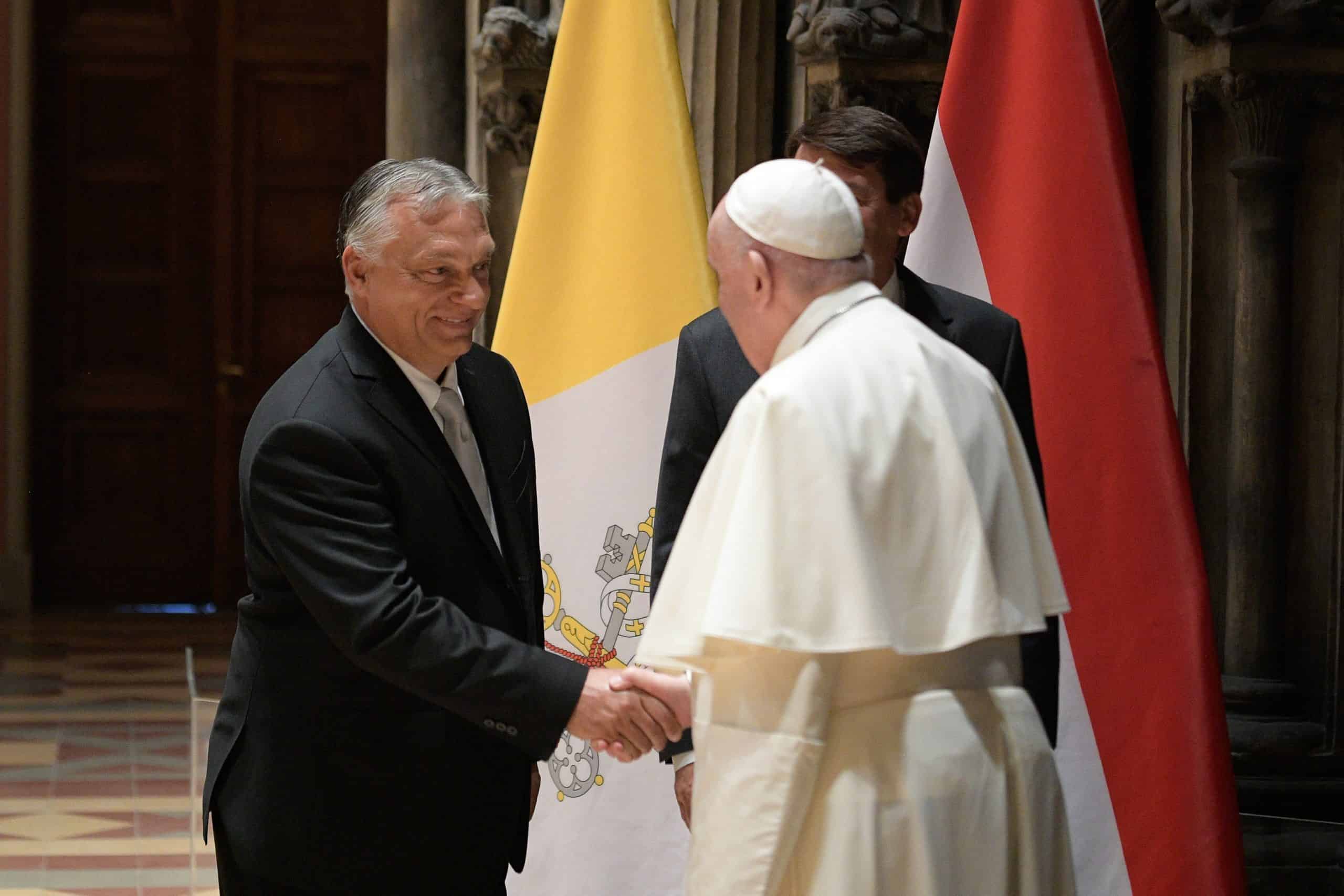Pope Francis has sometimes sparred with heads of state. He has implied some are not Christian while others have called him names. Recently, though, Francis has come under fire with a new accusation: neglecting a head of state.
This past week, Pope Francis paid a visit to Hungary to mark the end of the 2021 International Eucharistic Congress. It was a short visit, lasting only about seven hours, after which Francis proceeded to neighboring Slovakia for a full state visit of four days.
Despite its short duration, the visit managed to spark controversy. Actually, the short length of the stay was in itself a large part of the issue.
Typically, when the pope visits a country, he meets with national leaders, holds public liturgies, and visits all manner of local clergy and lay people over the span of several days. Indeed, the pope’s visit to Slovakia followed this pattern: he visited four cities over three days, presiding at several public Masses, meeting both Catholics and non-Catholics, and defending the Roma people during a visit to the largest Roma ghetto in Europe. Even with COVID-19 raging in Iraq this past March, Francis spent three days traveling around the country.
In the lead-up to Francis’ visit, the lopsided duration of his time in Hungary compared to his visit to Slovakia immediately led to charges that he was snubbing Hungary.
If the pope did want to send a message by keeping his visit short, it would not be hard to deduce why: he and Prime Minister Viktor Orban do not see eye-to-eye, especially on the subject of immigration. Francis has consistently called on Western leaders to welcome migrants and refugees; his first trip outside Rome was to Lampedusa, to see where many migrants from North Africa arrive first on Italian soil, and he memorably brought a group of Muslim Syrian refugees back to the Vatican with him after a visit to Greece. On the other hand, Orban has been a leader in opposing immigration, painting his stance as a defense of a Christian Europe under attack from Islam.
Francis raised eyebrows when he admitted in an interview he did not know if he would even meet Orban while he was in Hungary.
As it happened, the two did meet for about forty minutes. While it does not seem that migrants came up between the two, Francis did make a point of calling on Hungary to be more welcoming of needy outsiders in remarks he made after Mass.
The Hungary incident was not the first time Francis has found diplomacy awkward in his eight-year papacy. He has had a rocky relationship with the political leadership of his native Argentina, especially former president Cristina Fernandez de Kirchner. Francis criticized Fernandez and her husband and fellow former president Nestor Kirchner of enacting policies that favored the rich and neglected the poor. He has visited much of Latin America but has yet to visit Argentina, leading commentators to believe he is snubbing his home country, perhaps over continuing political disagreements.
Francis has also spent little time in Western Europe, in marked contrast to his immediate predecessor Benedict XVI, for whom the “New Evangelization” to bring Christian Europe back to its roots was a major priority. In eight years as pope, Francis has not visited Spain or Germany, and his sole visit to France, for an address to the European Parliament in Strasbourg, lasted only a few hours. The fact that Francis has not visited these bedrock lands of Catholic Europe could suggest there is something about Europe he may want to keep at arm’s length.
However, the places Francis chooses to give his time (and his physical presence) may simply reflect a shift in priorities on the part of the first-ever Latin American pope. Francis clearly likes to provide a “shot in the arm” to countries with small Catholic minorities, places like the Central African Republic and Myanmar which face domestic strife, and countries on the frontier of Muslim-Christian relations like Egypt, Jordan, Iraq, and the United Arab Emirates.
It may be a temptation to read too much into Francis’ travel schedule. After all, Hungarian and Vatican officials both stressed that the pope’s visit to Hungary was so short because that’s all he was invited to do.
One pope can only have so many priorities, and Francis has clearly used his travel schedule in different ways than his predecessors did. Any pope has a great deal of diplomatic relationships to juggle – maybe we should resist finding drama where there is none.
________________________
Photo from Catholic News Service: Pope Francis greets Hungarian Prime Minister Viktor Orbán.


